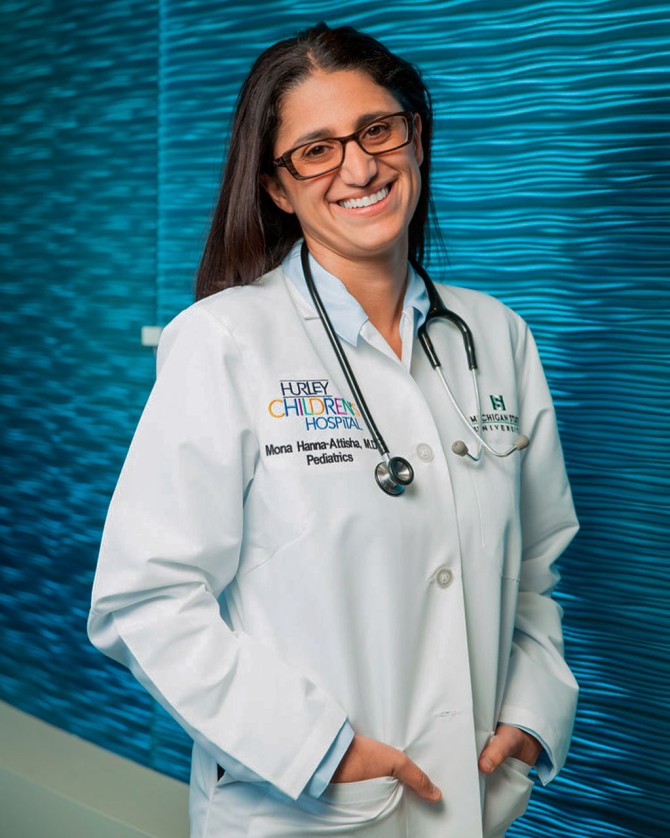Dr. Mona Hanna-Attisha, the pediatrician who eight years ago called attention to the poisonous water pouring from lead-tainted pipes in Flint, Michigan, will deliver the Joyce Lindower Wolitzer '76 and Steven Wolitzer Nutrition Seminar Tuesday, April 26, at 6 p.m. in Call Auditorium, Kennedy Hall.
Presented by Cornell's Global Health Program in the Division of Nutritional Sciences, the lecture is free and open to the public. A panel discussion will be moderated by Efe Airewele '20, Talia Bailes '20 and Sravya Varanasi '22, all global and public health sciences majors. A book signing and reception will follow.
In her 2018 memoir, "What the Eyes Don't See," Hanna-Attisha reflected on how she agonized over - and ultimately embraced - the role of public health activist, and stood toe-to-toe with dismissive government officials on behalf of her patients and their families. The work earned her multiple invitations to testify before Congress, as well as the CDC Foundation's 2020 Fries Prize for Improving Health, among other accolades.
Jeanne Moseley, senior lecturer in the Division of Nutritional Sciences and director of the Global Health Program, first assigned "What the Eyes Don't See" to her students in the fall of 2018.
"The students loved it," she said. "They were outraged, but at the same time inspired and encouraged by Dr. Mona's example of perseverance, activism and commitment to the health and well-being of Flint families and kids."
When conversations about the book spilled out of the classroom, Moseley reached out to Hanna-Attisha.
"It was impactful to see how much her story had shaped and inspired them," said Moseley, who has assigned the book every year since. "I wrote to tell her how grateful I was that she had taken time to write the book."
Soon after, Moseley invited Hanna-Attisha, now the Charles Stewart Mott Endowed Professor of Public Health and an associate professor of pediatrics and human development at Michigan State University, to visit Cornell. Moseley's teaching assistants at the time, including Airewele and Bailes, participated in planning the event, which had to be postponed due to the pandemic.
"For me, the impact of Dr. Mona's immigrant story was particularly profound," said Airewele, noting the author's Iraqi heritage. "As the daughter of immigrants pursuing a career in medicine, I was blown away by her courage uncovering the Flint water crisis because she not only risked her reputation as a physician, but also as a member of her family."
Current teaching assistants and members of the Global Health Student Advisory Board updated the plan when campus reopened.
"We're so excited that we can finally make this happen," Moseley said. "Our hope is that through this conversation with Dr. Mona, we can promote dialogue surrounding the intersections of environmental justice, public health, medicine and social activism."







